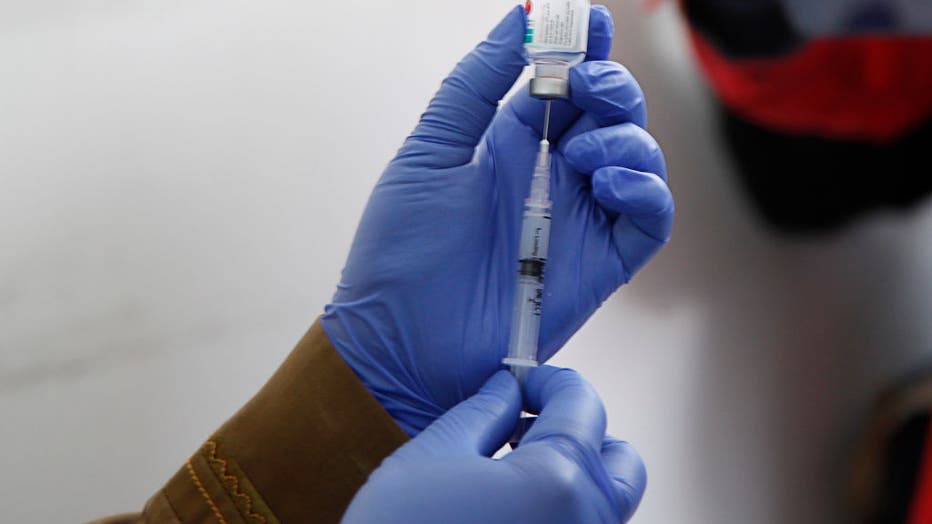North Texas hospitals among those across the state to receive COVID-19 antibody treatment
Texas Governor Greg Abbott said a newly approved COVID-19 antibody treatment, bamlanivimab, will soon be sent to hospitals across the state.
He said the Texas Department of State Health Services will ship the treatment to hundreds of Texas hospitals, including 64 here in North Texas.
But the goal is to get the medication to people before they need to be hospitalized, and that could keep hospitals from becoming overwhelmed.
“The state of Texas is already prepared to be delivering those vaccines and therapeutic drugs beginning this month,” Gov. Abbott said.
Just two days after Gov. Abbott said Texas is ready to distribute COVID-19 therapies, we now know it could happen as soon as next week.
“We’re encouraged because COVID has taught us a very hard lesson, which is, we cannot rush anything. We have to wait for properly conducted clinical trials. These clinical trials are actually very rigorously conducted,” said Dr. Uriel Sandkovsky.

A file image shows a medical worker preparing a vaccine during a COVID-19 vaccine trial. (Photo by Adriana Adie/NurPhoto via Getty Images)
Baylor Scott & White Health in Dallas partnered with Eli Lilly on its clinical trial.
Dr. Sandkovsky led a similar trial and described how a monoclonal antibody therapy works.
“Those antibodies are basically like keys that attach to the virus, and prevent the virus from getting into the cells of the human body,” he said.
Dr. Sandkovsky said the release of the antibody therapy for emergency use could be a key to not only preventing people from getting seriously ill, but it could also help hospitals that are once again pressing their limits.
“There’s a lot of pressure going around. Texas has been hit really hard again. We’re back in the same way we were in July and August. We’re seeing the same amount of patients getting hospitalized,” he said. “This is one way that can help hospitals in the system, in the whole state, to prevent admissions, that is actually going to be good.”
But he also warned that the 64 North Texas hospitals receiving the medicine will be getting a limited number of doses, as it takes time to manufacture antibodies in a lab.
“Now you have to determine how you’re going to administer it and who gets it. ERs are overwhelmed with patients, so this is going to be a work in progress,” Dr. Sandkovsky added. “When you have a new drug to be used as emergency use, you have to be judicious about who is going to receive it.”
Dr. Sandkovsky said there are no major side effects with the IV treatment known at this time, but when you bring a medication to the masses, that could change.
And in this case, the clinical trials for the drug are still underway.
“This is just the beginning. There is still a lot of work to be done,” he said.
The state has not yet said what day the doses will arrive at North Texas hospitals, or how many doses will be available.
It will only be for people with high risk conditions.
Dr. Sandkovsky said people will likely need to go through their primary care physician to apply for the medication.

